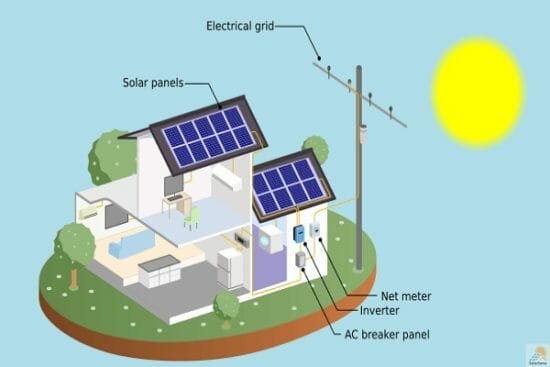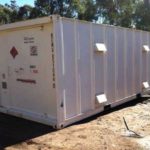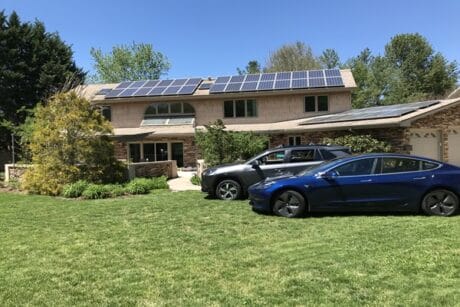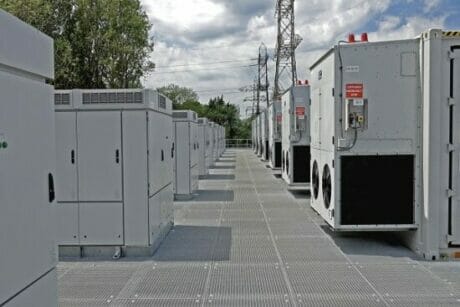No products in the cart.
4.3
- Webinar No: WBNR 1140
- PDH Units: 2
Webinar No: WBNR 1140
PDH Units: 2
4.3
- Webinar No: WBNR 1140
- PDH Units: 2
Webinar No: WBNR 1140
PDH Units: 2
Intended Audience: Electrical Engineers
Credits: 2 PDH Units
When: Wednesday 3/8. 2 - 4 pm EST
Designing Residential Grid-Connected Photovoltaic Systems
As the cost of electricity generated by a residential PV system is now below the cost of utility electricity, residential rooftop PV systems are now being installed at a rapidly increasing rate. The goal of this webinar is to present the underlying economics of solar electricity and then proceed with how to design the structural and electrical components of microinverter systems, optimizer systems and string inverter systems for residences. Detailed design examples, including wind load calculations and electrical calculations, are used to demonstrate compliance with relevant codes and standards. Emphasis is placed on HOW the systems work, since rapidly changing technology requires the ability to understand the specifications of various technologies as they emerge. References- NFPA 70 National Electrical Code
- ASCE 7-16 Minimum Design Loads and Associated Criteria for Buildings and Other Structures
- Manufacturers Equipment Data Sheets and Installation Manuals
Date: Wednesday. March 8. Starts: 2 - 4 pm ET Credits: 2 PDH Units
Learning Objectives
Upon completion of the course, the student should understand the terminology and the economic, environmental and possible emergency or standby power availability benefits associated with design and installation of a PV system. Specific topics discussed are- PV Economics for 2023 – LCOE and Energy ROI
- Types of PV Systems – Stand Alone, Straight Grid Connected and Energy Storage Systems
- Sun and Equipment Basics
- Grid-Connected Options
- Code Compliant Design and Installation Requirements
- Wind Load Calculations
- Array Mounting Options and Calculations
- Electrical Design Examples for Microinverter, Power Optimizer and String Inverter Systems
- Code-Compliant Methods of Utility Interconnection
Special Webinar Instructions
After payment, please visit this webinar page, click "Start Course" and fill out the Webinar Registration Form. You'll receive email notification and details on how to join the webinar. You will then be able to access the webinar slides, test your system and receive webinar reminders. After completing the webinar requirements, your certificate of completion will be saved and available for download in your profile. We value your feedback! Please rate this webinar after completion.Group Discounts Available
Course Reviews
4.3
4.3
24 ratings - 5 stars9
- 4 stars13
- 3 stars0
- 2 stars0
- 1 stars3
Once completed, your order and certificate of completion will be available in your profile when you’re logged in to the site.









Great overview of photovoltaic systems, options, and the design process and elements required to design a functioning system. Very good course! Liked the photos of various installed systems, the system diagrams and tables, as well as the design sample calculations. I will be signing up for more solar design webinars!
Started with a few technical issues but overall covered the basics very well.
Enjoyed the course. I obviously did not take enough notes to supplement the provided information in the presentation. It started a little slow but picked up. Good value, I will consider additional classes.
Great overall, a little tough with the equations as there was not a lot of time to discuss but having the slides will allow to go back and review. A little distracting with the background noise with wife answering phone.
Content was great, would have liked to learn more about batteries, battery sizing, etc.
A bit of technical issues, but otherwise a good starter course.
As a mechanical engineer involved in the design and implementation of a 5 MW solar electricity generation facility to be located on a disused landfill this course has given great insight into some of the mounting requirements for the panels and an understanding of how the solar arrays are connected electrically
Lots of information to cover in a short period of time. Good introduction to the basics
Thanks – great info and refresher.
As a civil engineer in the solar industry this seminar helped me understand what the electrical engineers do in my company. Easy to follow with good, real engineering calcs.